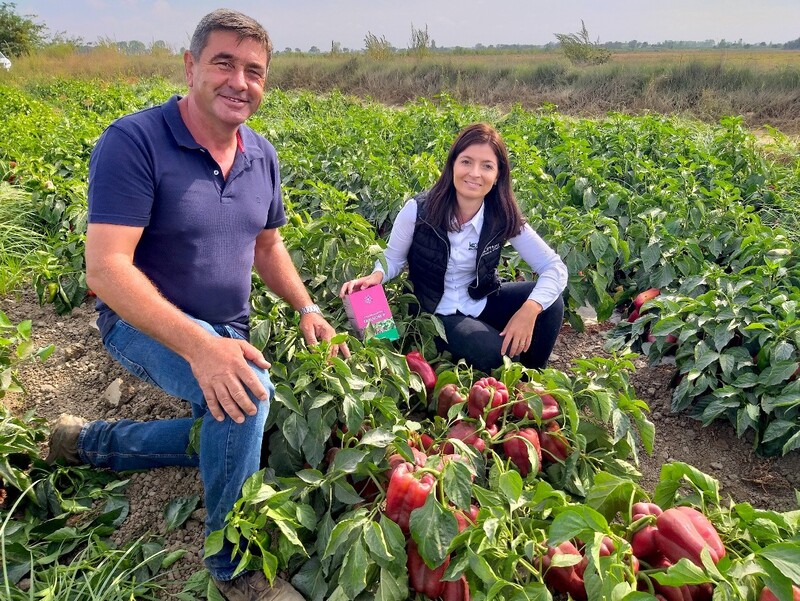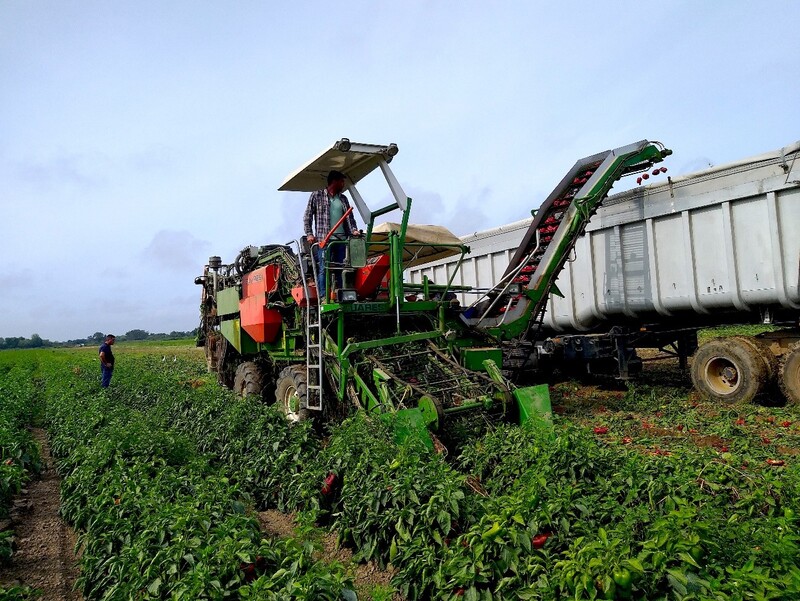
Trianum, Koppert's biological fungicide that contains the exclusive T-22 strain of Trichoderma harzianum, has achieved excellent results in pepper crops for processing in Portugal, a country where this biological fungicide has been registered since 2018 in its two formulations (Trianum-P and Trianum-G).
Industrial crops, like all others, are also affected by soil fungi that considerably reduce their productivity and profitability. To optimize the use of Trianum-P in industrial crops, Koppert Portugal has carried out trials with several growers. One of these trials was carried out with the company Sociedade Agrícola Militão, in the town of Ribatejo, in a pepper crop for the processing industry.
Pedro Militão is one of the two owners of the company Sociedade Agrícola Militão which cultivates about 40 hectares of peppers in the Marinhais area. The entire crop is harvested mechanically. With mechanization, it is very important that all plants reach the end of their cycle with a high level of plant health and vigour so that the harvesting machine can do its work well. ‘With the introduction of mechanical harvesting, we were forced to change our way of producing and we decided to introduce new means that help protect the roots. It was in this way that we first learned about Trianum-P, a biological solution with which we have confirmed an increase in plant resistance to soil fungi, achieving greater vigour and, consequently, obtaining a higher final production,’ explains Pedro Militão.

Sociedade Agrícola Militão highly values the fact that Trianum is a 100% natural product, authorized for organic farming and that it does not leave residues on fruit. Trianum is aligned with the positioning of the company which is very conscious of sustainable agricultural practices that respect the environment. ‘Without a doubt it is a product with a lot of potential for pepper cultivation,’ says Pedro Militão.
The good results obtained with Trianum make Koppert's biological fungicide a safe and effective alternative to pesticides in vegetable crops for the processing industry, which are very important in Portugal. Around 80% of the total production of vegetables for the processing industry in Portugal is exported to other countries after undergoing different processes such as freezing or cooking. The main vegetable crops for processing in Portugal are: Tomato (14,500 hectares), Peas (3,500 ha), (Broccoli 4,000 ha), (Pepper 1,000 ha), Zucchini (150 ha), Sweet potato (120 ha), and Aubergine (90 ha).
The great challenge facing the production of crops for the processing industry is to work at a low price in which the fruit and vegetable product present the physical and organoleptic characteristics of the variety, free of pests and diseases and free of pesticides, guaranteeing the final consumer zero residue. Trianum has proven to be a good solution that eliminates the need to use pesticides to control diseases at the soil level in industrial crops. For this reason, Trianum has become an important part of sustainable agriculture in Portugal.